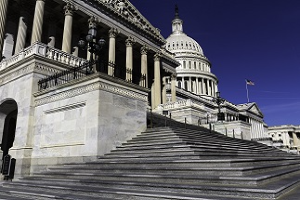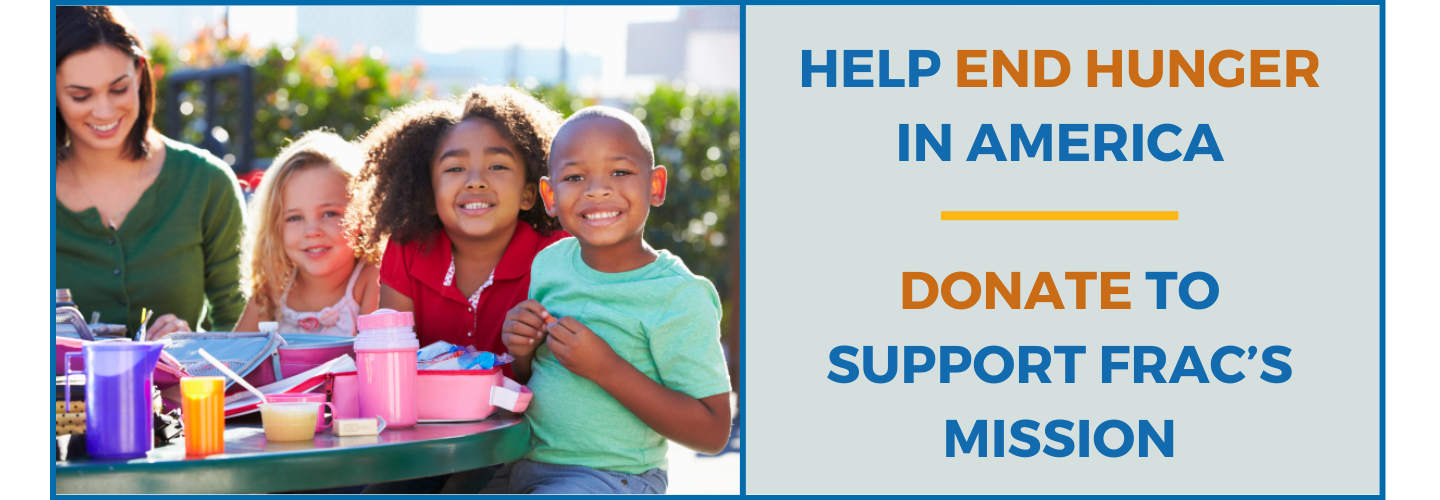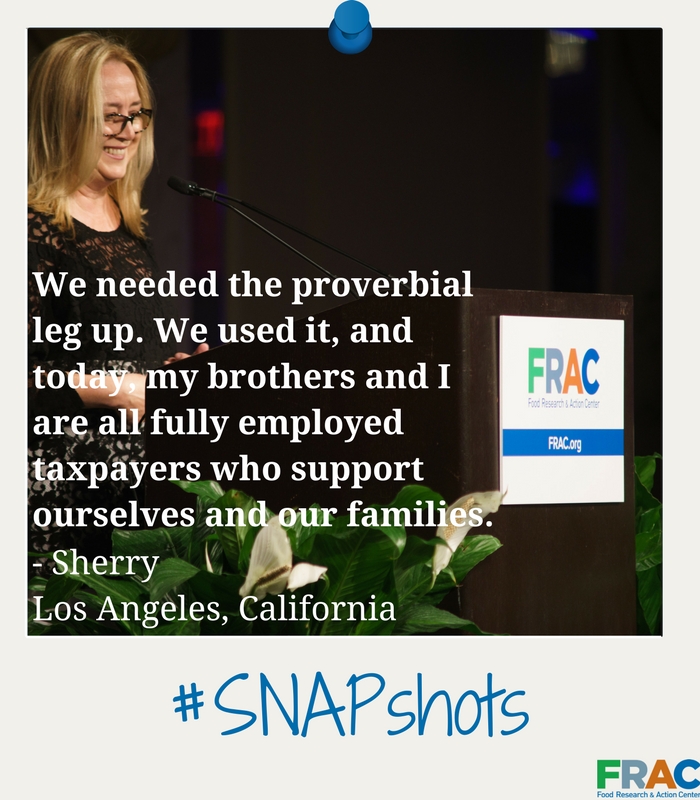
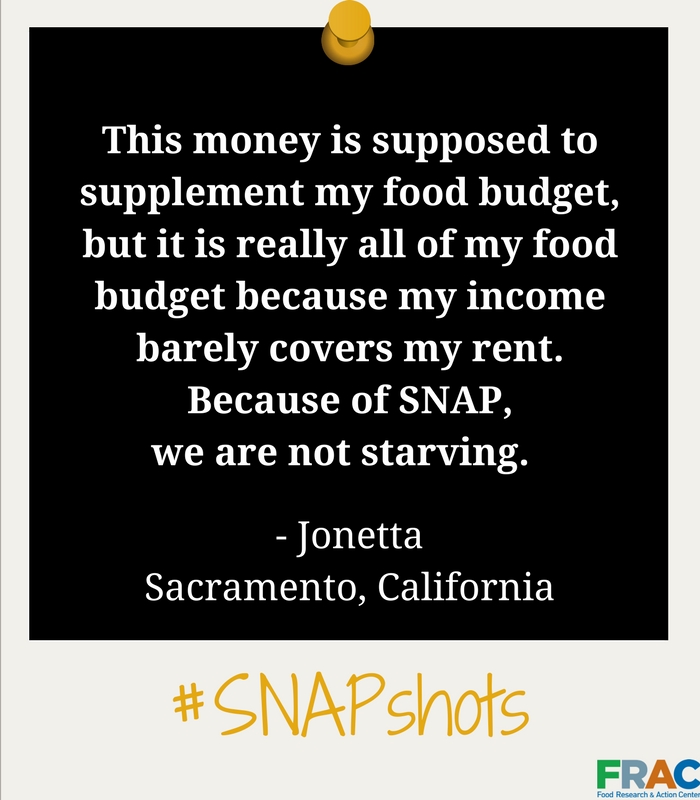
Resources

MODERN WIC Act Fact Sheet
Learn More
Make America Healthy Again Commission: Improve Child Health by Protecting and Strengthening the Federal Nutrition Programs
Learn More
National SNAP Fact Sheet
Learn More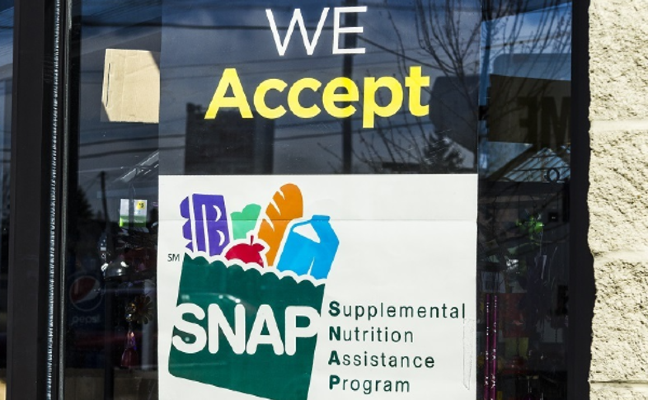
Challenges in Researching the Diets of SNAP Recipients
Learn More
SNAP State-by-State Fact Sheets
Learn More
CEP State-by-State Fact Sheets
Learn More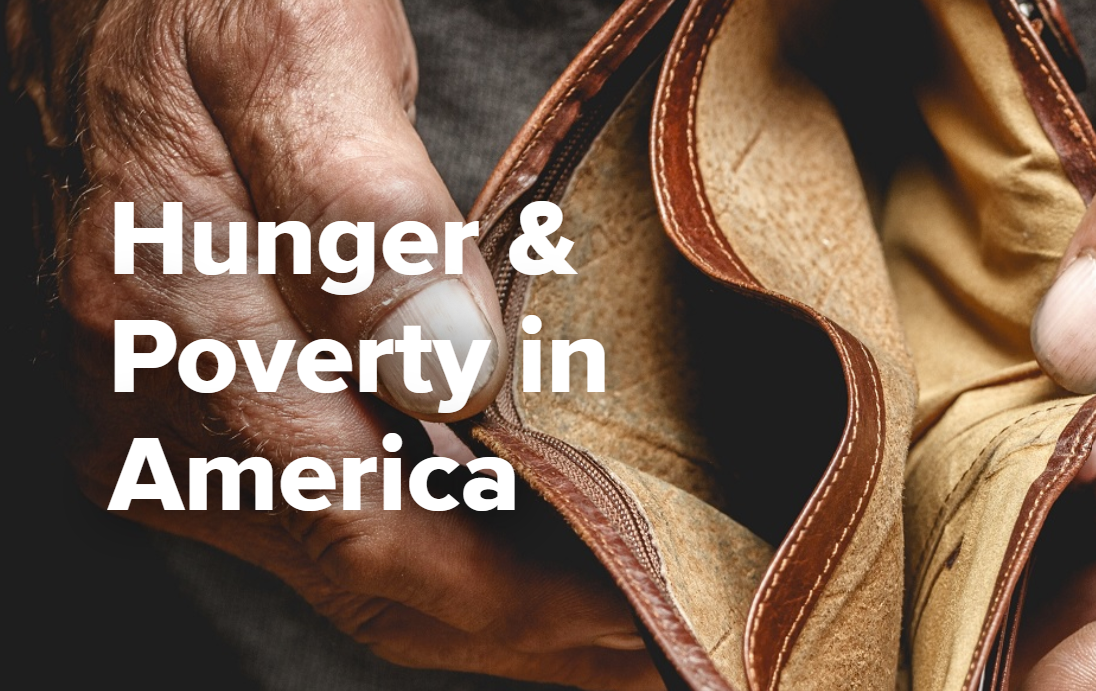
Hunger & Poverty in America
Explore the Data
Summer EBT Resource Center
Learn more
Healthy School Meals for All
Learn More
News
FRAC Chat
The far-reaching consequences of President Trump’s newly enacted Budget Reconciliation Bill (H.R. 1) —passed by Republicans in Congress and signed by President Trump on July 4, 2025 — will be felt in every corner of the country. Although the fallout will be local, the design is federal. This is not accidental; it is a deliberate strategy to make essential programs like the Supplemental Nutrition Assistance Program (SNAP) more expensive and politically unsustainable at the state level. By forcing states to shoulder greater expenses and administer these cuts, Republican federal lawmakers deflect responsibility for weakening the nation’s most effective anti-hunger program. Despite strong opposition from Senate and House Democrats — joined by governors, advocates, and constituents — Republicans advanced a bill that prioritizes tax breaks for the wealthy while gutting support for families with low incomes and placing new costs on states.
Despite strong opposition from Senate and House Democrats — joined by governors, advocates, and constituents across the country — Republican-led changes to the Supplemental Nutrition Assistance Program (SNAP) moved forward. These provisions, embedded in the reconciliation process that approved President Trump’s and congressional Republicans’ broader fiscal agenda in H.R. 1, prioritize tax breaks for the wealthy while shifting greater burdens onto states and working families.
Currently, the budget process for fiscal year 2026 is in full swing. We have budget proposals from the White House, House, and Senate. As a discretionary program the Supplemental Nutrition Program for Women, Infants, and Children (WIC) is set through this appropriations process each year. Traditionally, WIC has received the funding needed to serve any eligible people who apply, however, not all of the proposed budget includes the needed funding.
Recent Publications & Data
See More Resources- Fact Sheet
The MODERN WIC Act will make WIC a more efficient and accessible program and ensure that pregnant individuals, infants, and children have access to the nutritional supports they need. Learn more in FRAC’s one-pager.
Read the fact sheet - Fact Sheet
The Summer EBT (Electronic Benefit Transfer) Program provides families with approximately $40 a month per eligible child to help with food costs during the summer months. This case study highlights how six states determined their administrative funding levels for the first year of Summer EBT implementation, as well as considerations for those states that have not yet participated.
Read the fact sheet - Fact Sheet
The Supplemental Nutrition Assistance Program (SNAP) helps millions of families put food on the table every month. It provides women, LGBTQIA+ people, and their families with critical nutrition assistance that supports their health and well-being.
Yet the House-passed budget reconciliation bill and Senate proposal seek to make wide-reaching cuts to SNAP, including by expanding time limits. Learn how these proposals would harm women, LGBTQIA+ people, and families in a new resource from FRAC and the National Women’s Law Center.
Read the fact sheet - Report
More schools and school districts are offering free school meals to all students through the Community Eligibility Provision (CEP), according to FRAC’s latest report, Community Eligibility: The Key to Hunger-Free Schools. This report analyzes CEP adoption—nationally and for each state and the District of Columbia—in the 2024–2025 school year.
Read the report


